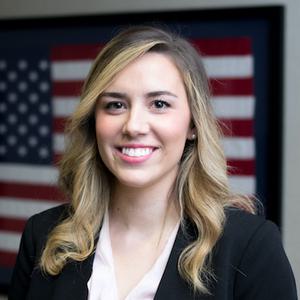
Health Care
Kaitlyn Finley | October 10, 2019
Medicaid fraud, mispayments cost taxpayers billions
Kaitlyn Finley
You are the CEO and owner of a mammoth private tech company. Last year you lost $10 billion due to hundreds of high-profile fraud schemes within your company. Your team wants to increase the company’s projected 2020 budget by an additional billion dollars and seek outside capital with no plans to address the fraud. Would you sit for this?
If that pitch sounds problematic, you have some common sense. Unfortunately, simple financial wisdom is too often ignored in the halls of Congress and in state capitals today when dealing with welfare programs—and Medicaid is no exception.
In 36 states (and the District of Columbia) state policymakers have continued to turn a blind eye to massive cost overruns and fraud as they have opted to expand their state Medicaid programs to millions of able-bodied, working-age adults. According to a report from the National Association of State Budget Officers, Medicaid now accounts for nearly 30 percent of all state expenditures; 10 years ago, Medicaid was responsible for 20 percent of total state spending.
Medicaid—both in states that have expanded the program under the provisions of the Affordable Care Act and in those that have not—is plagued with fraud and with poor auditing systems, costing taxpayers billions of dollars.
According to an academic study published last August by the National Bureau of Economic Research (NBER), researchers found that in nine expansion states, “around 800,000 individuals…appeared to gain Medicaid coverage for which they were seemingly income-ineligible” in 2017. Brian Blase, President Trump’s former health care economist and current senior fellow with the Galen Institute, analyzed the cost data from the NBER study and estimated that the cost of improper enrollment of expansion enrollees “almost certainly exceeds $10 billion per year and may actually be two times that level.”
In August, the U.S. Office of the Inspector General (OIG) found that Colorado’s state Medicaid agency may have spent up to $93 million on those ineligible for Medicaid benefits from 2014 to 2015. State administrators enrolled recipients who made too much money to qualify for Medicaid or who were not Colorado residents. Last year, Louisiana state auditors found similar results for the Pelican State’s Medicaid program; the audit revealed Louisiana may have spent up to $85 million on ineligible Medicaid expansion enrollees since 2016.
Errors by Medicaid state agencies regarding eligibility can cost state taxpayers millions of dollars. So can fraud. Oklahoma’s Medicaid program, like all states, has seen many cases of fraud from providers in recent years. Since 2014, Oklahoma’s Medicaid Fraud Control Unit (MFCU) has recovered more than $91 million in fraudulent funds for Oklahoma’s Medicaid Program.
Earlier this year, an Edmond couple who operated Mercy Diabetics Supply pleaded guilty for submitting false Medicaid claims for reimbursement to the Oklahoma Health Care Authority (OHCA). They were ordered to pay $268,796 in restitution.
In August, a pharmacy owner in Mangum, Oklahoma, pleaded guilty to two counts of health care fraud and was ordered to pay restitution of $338,000 for submitting false medical prescription claims to Oklahoma’s Medicaid program.
It’s no secret that Medicaid fraud is alive and well in Oklahoma. As with any government program, it can be difficult to weed out fraud and abuse. But the last thing Oklahoma lawmakers should do is expand Medicaid and add hundreds of thousands of able-bodied adults to Oklahoma’s welfare rolls.

Kaitlyn Finley
Policy Research Fellow
Kaitlyn Finley currently serves as a policy research fellow for OCPA with a focus on healthcare and welfare policy. Kaitlyn graduated from the University of Science and Arts of Oklahoma in 2018 with a Bachelor of Arts in Political Science. Previously, she served as a summer intern at OCPA and spent time in Washington D.C. interning for the Heritage Foundation and the U.S. Senate Committee on Environment and Public Works.